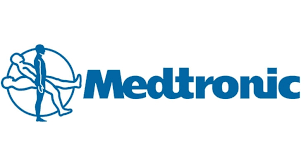An article published today in Circulation by HCM experts Dr. Steve Ommen of Mayo Clinic and Dr. Martin Maron of Tufts Medical Center, discusses the prospective use of mavacamten as a treatment for obstructive hypertrophic cardiomyopathy. The doctors conclude that while mavacamten (assuming that it is FDA approved in early 2022) will have its place in the HCM tool kit, it should not replace septal reduction therapy for severe HOCM.
In particular, the article points out that the EXPLORER-HCM study showed modest improvements in symptoms and functional capacity (peak V02), comparable to those seen in the RESET-HCM study, which highlighted the ability of regular exercise to improve functional status in HCM.
The article notes that there has not yet been a study directly comparing mavacamten with septal reduction therapies such as septal myectomy and alcohol septal reduction. The VALOR-HCM study, which is currently recruiting, will look at these therapies compared head-to-head. It is noteworthy that the majority of patients in the EXPLORER trial had Class II heart failure and were not the more severely compromised Class III and IV patients most likely to benefit from myectomy or alcohol septal ablation.
This article compared historical myectomy data against the findings from EXPLORER, concluding that septal myectomy produces a better result for patients, with gradients abolished in more than 95% of patients compared to only 50% of patients with mavacamten. And, the article points out that 25% of the patients in the EXPLORER trial continued to have left ventricular outflow tract gradients greater than or equal to 50mmHg, which still qualified them for septal reduction therapy.
Maron and Ommen’s take-home message is that mavacamten will be a welcome addition to the arsenal of HCM drugs and is potentially suitable for patients who do not have severe symptoms, who do not have access to septal reduction at a HCM specialty center, or who wish to avoid more invasive therapies. It also may be used in the same way as disopyramide, to defer surgery by improving symptoms to a tolerable level.
Lastly, this article points out that there is a need for longer term follow up to study the effects of cardiac remodeling caused by mavacamten.
While it is wonderful to have options, it is important that patients and their medical team consider all available information, including potential benefit and risk, before moving forward with medical therapy.







